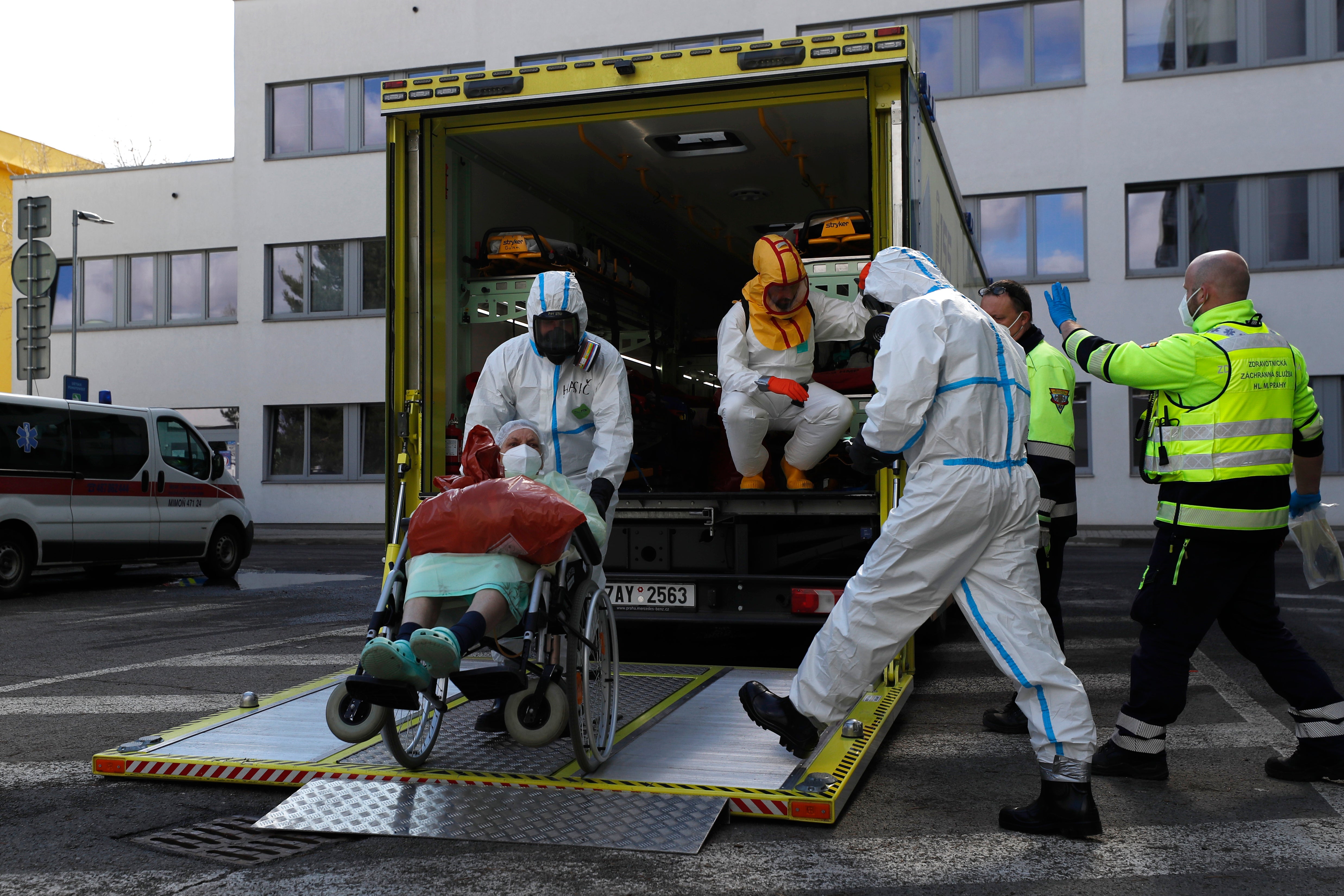Hospitalized with Covid rising amid record omicron surge
The number of COVID-19 patients in the Czech Republic has begun to grow amid a record surge of infections driven by the highly contagious omicron coronavirus variant

Your support helps us to tell the story
From reproductive rights to climate change to Big Tech, The Independent is on the ground when the story is developing. Whether it's investigating the financials of Elon Musk's pro-Trump PAC or producing our latest documentary, 'The A Word', which shines a light on the American women fighting for reproductive rights, we know how important it is to parse out the facts from the messaging.
At such a critical moment in US history, we need reporters on the ground. Your donation allows us to keep sending journalists to speak to both sides of the story.
The Independent is trusted by Americans across the entire political spectrum. And unlike many other quality news outlets, we choose not to lock Americans out of our reporting and analysis with paywalls. We believe quality journalism should be available to everyone, paid for by those who can afford it.
Your support makes all the difference.The number of COVID-19 patients in the Czech Republic has begun to grow amid a record surge of infections driven by the highly contagious omicron coronavirus variant.
According to figures released by Health Ministry, the number of hospitalized jumped to 1,695 on Monday, up from 1,537 the previous day.
It had been declining since Dec 6 when the previous wave, caused by the delta variant, peaked at 7,135 people needing hospital treatment during the previous wave caused by the delta variant.
The omicron variant spreads even more easily than other coronavirus strains. It also more easily infects those who have been vaccinated or had previously been infected by prior versions of the virus. However, early studies show omicron is less likely to cause severe illness, especially for those who have had two vaccinations and a booster.
Anticipating the surge, the government has cut isolation restrictions for those testing positive for COVID-19 from 14 to five days, and also similarly shortened quarantine time for close contacts of infected people.
It also has decided to allow workers in health care and nursing homes who have no symptoms of COVID-19 to stay on the job even if they test positive for the coronavirus.
___
Follow AP’s pandemic coverage at https://apnews.com/hub/coronavirus-pandemic